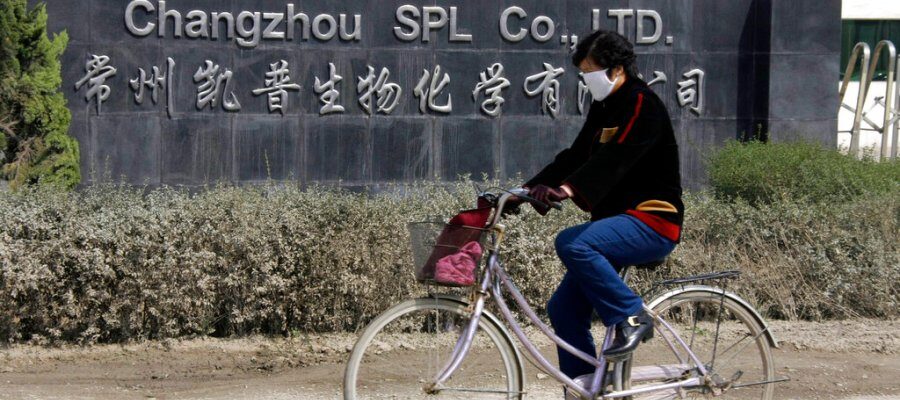Dependence on dangerous foreign drugs is killing Americans

In December of 2007, Leroy Hubley suffered the most devastating experience of his life. His wife of 48 years and son died within weeks of each other. The culprit? Contaminated doses of the Chinese-made drug heparin that was being taken to treat a hereditary kidney disease.
Leroy, his wife, Bonnie, and his son, Randy, put their trust in the prescription drug market and the FDA’s inspection system, which failed them. The drug they relied on to save their lives, which was manufactured in Communist China, did just the opposite. Two lives have been cut short meaninglessly.
But unfortunately the Hubley family is not the only victim of our country’s over-reliance on foreign-made medicines and the corrupt system that allows overseas manufacturers to evade quality controls. Nearly 20 years later, many issues remain that allowed the heparin tragedy, which claimed more than 100 lives, to occur. As of 2023, contaminated eye drops from India have killed four people and harmed at least 55 other patients.
America’s over-reliance on foreign-made drugs and loose oversight threatens the health of our citizens and jeopardizes national security. As Chairman of the US Senate Special Committee on Aging, I recently held a hearing investigating these failures in our drug purchasing system that put many Americans – especially older adults – at risk.
The United States currently relies on manufacturers abroad to secure approximately 75% of its basic drug supplies, and Communist China and India are among the largest contributors. Of the top 100 generic drugs consumed in the United States, 83% do not contain US-sourced active pharmaceutical ingredients (APIs). This means that if you search your medicine cabinet now, there’s a good chance you’ll find a generic medicine made abroad that includes active pharmaceutical ingredients from abroad.
As Dr. George Ball, associate professor and Wymer Faculty Fellow at Indiana University’s Kelley School of Business, testified before the Committee on Aging, gaps in the FDA’s supervisory structure mean that many of these active pharmaceutical ingredients produced abroad have been shown to be of lower quality and more dangerous than those manufactured in the United States. Paul’s research is clear: low-quality medicines imported from places like Communist China and India are not only at risk of becoming less effective, they are also, in many cases, dangerous and life-threatening.
Foreign drug manufacturing plants are not subject to the same level of oversight as factories in the United States. At the aging hearing, we heard from Peter Becker, a former FDA inspector who spent years inspecting manufacturing sites overseas. He shared his first-hand accounts of falsified quality reports, lack of routine testing, unregistered “shadow” facilities pushing low-quality medications through approved sites, and site inspections announced months in advance, allowing facilities to put on a fresh coat of paint to cover up their dangerous practices.
These quality control issues pose a direct threat to all Americans, but that is only half a terrifying problem. America’s overreliance on generic drugs manufactured abroad poses enormous vulnerabilities in the generic drug supply chain, creating a major threat to US national security.
Think about it: If Communist China, which describes itself as an enemy of the United States or India, wanted to stop supplying prescription drugs to the United States, it could do so at any moment.
If that happens, the United States has no plan to keep these life-saving generic medications that millions of Americans need available. We will run out quickly, and people will die. Americans on Medicare and Medicaid, and our servicemen and women who depend on medications provided through the War Department, account for the lion’s share of U.S. purchases of generic drugs made abroad, and are particularly vulnerable to supply chain disruptions of this kind. Not only are we risking our lives, we are draining America’s tax dollars through these programs to help fund a hostile nation committed to destroying our way of life.
Remember: Communist China has already limited exports of items like rare earth metals, and during the coronavirus pandemic, India blocked the export of important pharmaceutical ingredients. It could happen again.
Equally concerning is that more than 40 percent of generic drugs sold in the United States have only one FDA-approved manufacturer. If a shortage occurs, the FDA must strive to find alternatives. This happened during a shortage of the chemotherapy drug, cisplatin, in 2023. The FDA turned to an unapproved Chinese alternative to fill the gap, intentionally allowing more questionable drugs to enter the US market.
But despite this threat, Communist China and India’s grip on generic drug markets in the United States continues to grow, Exiger CEO Brandon Daniels testified at the hearing.
If we cannot solve this problem, it is only a matter of time before more American lives are needlessly lost. We have failed to act to protect access to the safe, quality-controlled life-saving medicines that we, our children and our parents depend on. This must stop now.
I will not stop fighting to expose and solve this problem to protect our seniors and all Americans who depend on generic prescription drugs. The Commission on Aging just held its second hearing and will issue a report to propose solutions to protect Americans, secure sustainable supply chains for generic drugs, and end the current threat posed by Communist China and India’s stranglehold on this market. I hope that every American will stay informed about our work and demand change.
Republican Rick Scott represents Florida in the US Senate and serves as Chairman of the US Senate Special Committee on Aging. He is the former Governor of Florida.
